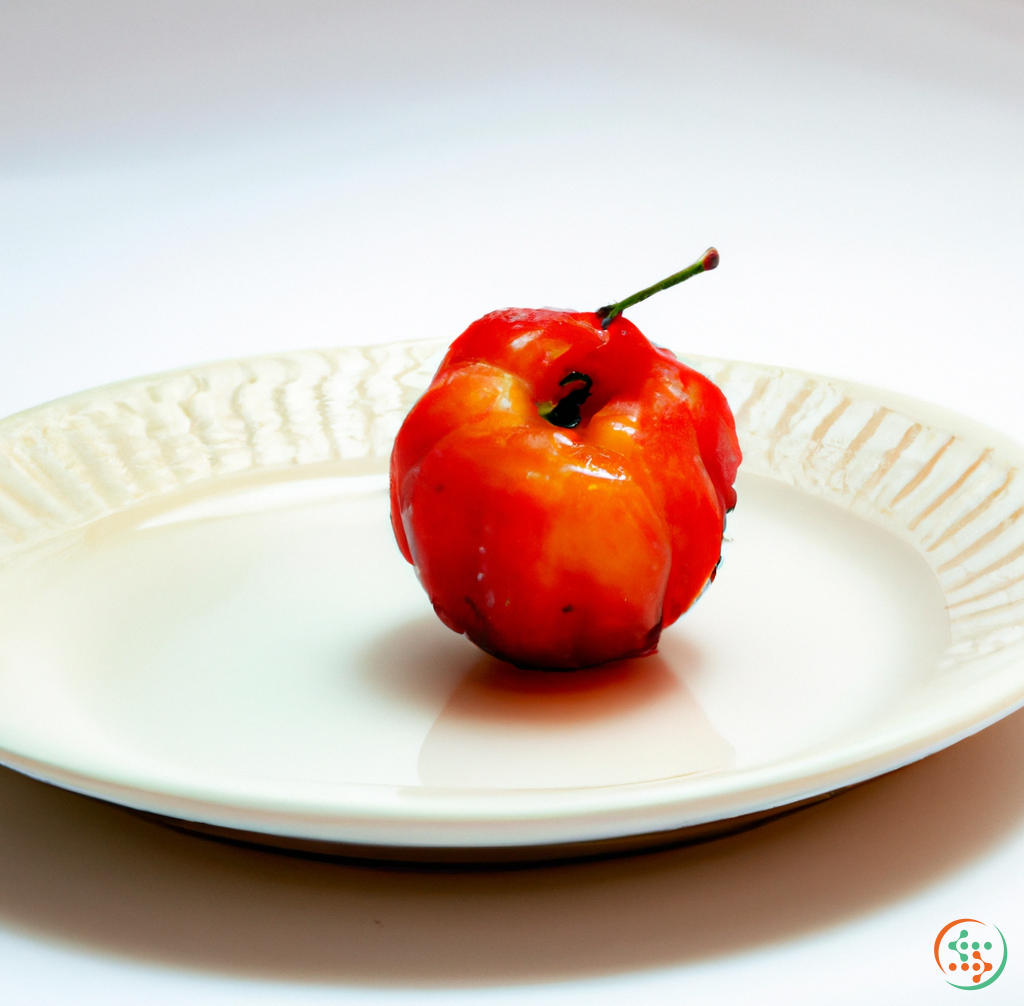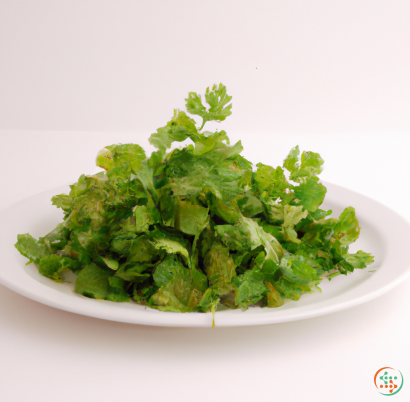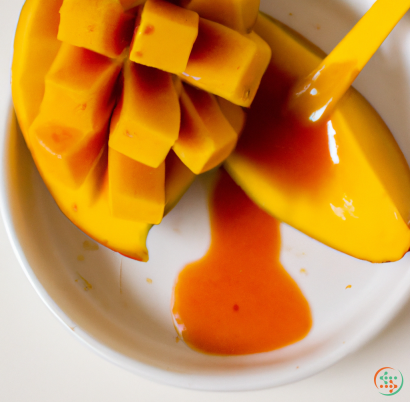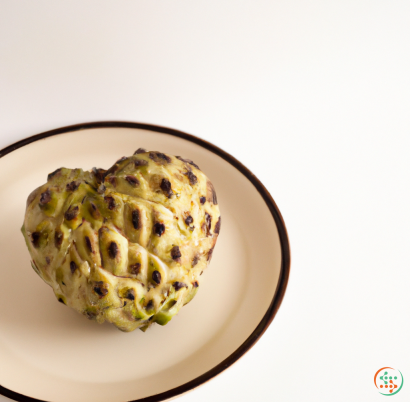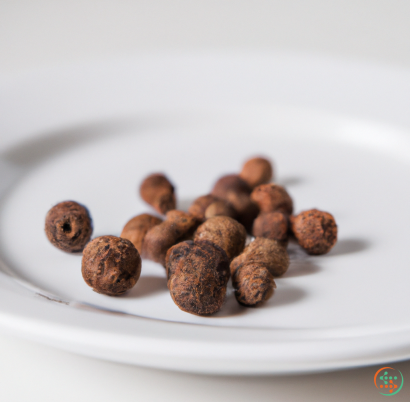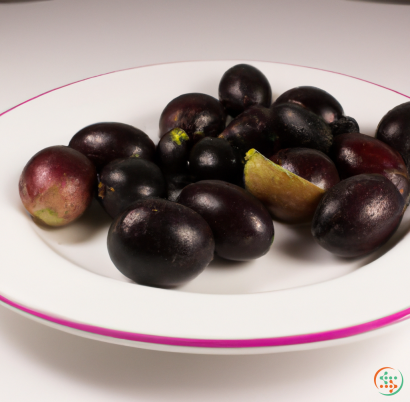Acerola
Acerola, or Malpighia emarginata, is a tropical fruit native to the Caribbean, Central and South America. It is one of the most nutrient-dense fruits in the world and is known for its high concentrations of vitamin C, antioxidant compounds, and other essential vitamins and minerals. Acerola fruit is commonly eaten raw or made into drinks and jams. It is also used in various beauty products and dietary supplements.
Acerola is a small, cherry-like fruit that typically measures from one to two centimeters in size. It has a bright orange or red color when ripe and a yellow or greenish tint when unripe. The inside of the fruit is composed of a creamy texture and contains numerous edible white seeds. Its flavor is often described as having a slightly sour taste, with hints of apple and strawberry.
Perhaps the most notable quality of the Acerola fruit is its high vitamin C content. A single Acerola provides approximately 442 milligrams of vitamin C, which is over seven times the recommended daily amount. This makes Acerola one of the most powerful sources of this essential vitamin, only surpassed by Camu Camu. Vitamin C is essential for many aspects of human health, as it helps to strengthen the immune system, reduce inflammation, and help the body absorb other nutrients. Not only that, but vitamin C is among the few nutrients that cannot be produced within the body and, therefore, must be obtained from outside foods.
In addition to a high vitamin C content, Acerola is also a rich source of carotenoids, plant pigments that are powerful antioxidants and can help to protect the body from disease-causing free radicals. Acerola is among the top fruits in terms of carotenoid content, containing significantly higher amounts than lemons and oranges.
Acerola is also an excellent source of other essential vitamins and minerals, making it highly nutritious and beneficial for our health. It is rich in vitamin A, calcium, magnesium, and potassium, and provides trace amounts of phosphorus, iron, and sodium.
Beyond its vitamin and mineral content, Acerola has several other health benefits that make it a powerful superfood. These include its anti-inflammatory and anti-viral attributes, its ability to improve cardiovascular health, and its potential to aid in digestive issues, such as constipation, bloating, and indigestion. Furthermore, the fruit’s rich concentration of antioxidants and vitamins may help to reduce the signs of aging and minimize skin damage from environmental stressors.
When it comes to consuming Acerola, there are many options. The fruit can be eaten raw, used to make juices or jams, and added to smoothies, cereal, and other recipes. It can also be taken in supplement form, which is convenient for those who are unable to find fresh Acerola in their area.
In conclusion, Acerola is an incredibly nutritious and beneficial fruit, rich in several essential vitamins and minerals. It is especially notable for its high concentrations of vitamin C, carotenoids, and other antioxidants. Eating Acerola or taking it in supplement form can provide many health benefits, including improved immune function, reduced inflammation, improved cardiovascular health, and even protection against skin damage. In short, Acerola is a powerhouse of nutrition and should be incorporated into any healthy diet.
Acerola is a small, cherry-like fruit that is widely used for its flavor and health benefits. The Acerola is native to Central and South America, although it has been cultivated throughout the world. Originating in Mexico, the Acerola was first documented by Spanish explorers as early as 1516. Commonly referred to as the West Indian cherry, Acerola fruit is notably juicy and sweet, with a taste similar to that of apples or peaches.
Despite its diminutive size, Acerola holds a multitude of nutrients and antioxidants. An impressive source of vitamin C, Acerola contains more than three times the amount of this nutrient than the widely-available orange. Furthermore, Acerola is full of essential dietary minerals such as iron, zinc, and magnesium, as well as natural organic compounds that have been linked to health benefits, including lowered blood pressure, stronger immune systems and improved heart health.
From the farm to the dinner plate, this versatile fruit has come a long way. But how does it get there? In this blog post, we'll explain the fascinating journey the Acerola takes from tree to table.
The first step in the Acerola process is harvesting the fruit from the tree. Usually, Acerola is harvested after a two to three month cycle of growth when the fruit is bright red. The Acerola trees must also be hand-picked, since manual labor ensures maximum yield and quality of the fruits. Once the Acerolas have been harvested, they are sorted for defects and sent along in the production process.
Next stop: Processing. After the Acerola fruits have been sorted, they are processed into different forms, ranging from purees and juices to powder and extract. This can be done using a variety of methods, including dehydration, centrifugation, and ultrafiltration. During processing, any number of preservatives or acids could be added to prevent spoilage and bacteria growth.
Once processed, the Acerola product is then packaged, labeled and shipped off to retailers. Depending on the geography, form, and season, different methods of packaging and shipment may be used. For example, if via rail transport, then the produce must be shipped in insulated containers in order to keep the Acerola products cool and fresh.
In many cases, Acerola must also be stored in warehouses post-processing. This is to ensure the product does not spoil or start to degrade before reaching stores. Consequently, the warehouses must often contain climate-controlled areas in order to maintain the optimal storage temperature for the product.
Finally, the Acerola makes its way to the dinner table. Before a consumer can purchase the product, it must first be stocked on store shelves and advertised to potential buyers. In order for the product to remain fresh, stores often place the Acerola in refrigerated cases to prevent spoilage.
Once purchased, the product can then be conveniently used at home. Due to its sweet flavor and versatile nature, the Acerola can be incorporated into a variety of meals and dishes. Acerola is especially useful in jams, pies, and smoothies, and can also be cooked in various forms. Some might even choose to try the product raw, as the high concentrations of vitamin C help fight off infections and illnesses.
Overall, the journey of the Acerola from tree to table is an interesting and complex one. Now that we have an understanding of the steps involved, it is easier to appreciate both the nutritional benefits and subtle flavors of this unique, fragrant fruit.
Although it exists in a handful of varieties, the Acerola is a highly sought after product among diners, athletes and health-nutters. In the end, the journey of the Acerola is worth celebrating, as it is packed with essential vitamins, minerals, and other organic compounds beneficial for our bodies. So, the next time you pick up a piece of Acerola, think of all the work and care that has gone into preserving its freshness and join us in celebrating this small but mighty superfood!
| Vitamin A | 0.038 mg | |
| Vitamin C | 1.6776 grams | |
| Vitamin B1 | 0.02 mg | |
| Vitamin B2 | 0.06 mg | |
| Vitamin B3 | 0.4 mg | |
| Vitamin B5 | 0.31 mg | |
| Vitamin B6 | 0.01 mg | |
| Vitamin B9 | 0.014 mg |
| Calcium | 0.012 grams |
Daily Value 1.3 g
|
| Iron | 0.2 mg |
Daily Value 0.018 g
|
| Magnesium | 0.018 grams |
Daily Value 0.4 g
|
| Phosphorus | 0.011 grams |
Daily Value 1.25 g
|
| Potassium | 0.146 grams |
Daily Value 4.7 g
|
| Sodium | 0.007 grams |
Daily Value 2.3 g
|
| Zinc | 0.1 mg |
Daily Value 0.011 g
|
| Copper | 0.09 mg |
Daily Value 0.9 mg
|
| Selenium | 0.6 ug |
Daily Value 0.055 mg
|
| Total Sugars | 0.131141 grams |
per 100g
|
| Palmitic acid (16:0) | 0.05 grams |
|
| Stearic acid (18:0) | 0.02 grams |
|
| Total Saturated fatty acids: | 0.07 g | |
| Oleic acid (18:1) | 0.08 grams |
|
| Total Monounsaturated fatty acids: | 0.08 g | |
| Linolenic acid (18:3) | 0.04 grams |
|
| Linoleic acid (18:2) | 0.05 grams |
|
| Total Polyunsaturated fatty acids: | 0.09 g | |
